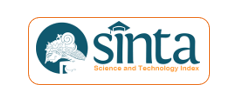PERJALANAN PENDIDIKAN SISTEM GANDA SEJAK MASA ORDE BARU SAMPAI AWAL REFORMASI (1994-2004)
Abstract
Scientific and technological mastery form one of the essential elements for the development support of an advanced and self-sufficient nation. In the face of the challenges of development, it is hoped that science and technology will improve the quality of human resources so that communities are adequately qualified to adapt to each development. In an effort to improve the quality of human resources, governments have contributed to the efforts of improving the quality of the vocational high school (SMK). Vocational secondary schools play a key role in preparing learners to create graduates who have a professional attitude at work to prepare for a competent workforce. As a dual system of education (PSG) in vocational high schools began a new partnership between schools and the unprecedented business world. Involvement between the two sides is one of the key factors in the success of the dual system education. The school has a responsibility to make the work world a guide in the making of a curriculum or a study in a school. This is to match the compatibility between the compatibility of the workplace skills of the educational society and the types of work the industry/job needs. Thus, institutions of education are required to be able to produce graduates who have the skills to work according to the types of work that the work world or industry needs. While the industry is expected to be able to guide learners in industrial practice activities, planning all the needs needed by learners during carrying out PSG.
Keywords
Full Text:
PDFReferences
Asnan, G. (2018). Biografi Tujuh Menteri Pendidikan dan Kebudayaan Republik Indonesia
BPS. (2020). Data Pengangguran Terbuka Pendidikan Tinggi.
Darmaningtyas. (2015). Pendidikan yang Memiskinkan. Intrans Publishing.
Darmono. (2016). Pendidikan Kejuruan Masa Depan. Pusat Kurikulum Dan Perbukuan Badan Penelitian Dan Pengembangan Kementerian Pendidikan Dan Kebudayaan
Depdikbud. (1996) Kuriulum Sekolah Menengah Kejuruan: Landasan, Program dan Pengem-bangan. Departemen Pendidikan dan Kebudayaan.
Depdikbud. (1993). Pengarahan Menteri Pendidikan dan Kebudayaan dalam Kongres Pemu-da/KNPI VII tentang Peningkatan Kualitas Sumberdaya Manusia dan Penerapan IPTEK. De-partemen Pendidikan dan Kebudayaan.
Dwijosumarto. (2000). Implementasi Pendidikan Sistem Ganda di Sekolah Menengah Ekonomi Atas. Jurnal Ilmu Pendidikan,7, 35-42.
Ermidawati. (2015). Peran Pendidikan Teknologi dan Kejuruan dalam Masyarakat. Prosiding APTEKINDO, 209-218.
Haryana, K. (1995). Pola Penyelenggaraan Pendidikan Sistem Ganda. Cakrawala, 3, 121-135.
Indriaturrahmi, I., & Sudiyatno, S. (2016). Peran Dunia Usaha Dan Dunia Industri Dalam Penyelenggaraan Smk Berbasis Kearifan Lokal Di Kota Mataram. Jurnal Pendidikan Vokasi, 6(2), 162.
Koran Republika, 13 Juni 1994
Kuntowijoyo. (2013). Pengantar Ilmu Sejarah. Tiara Wacana.
Murniati.(2021). Manajemen Mutu Terpadu Pendidikan Kejuruan. Yogyakarta: Deepublish
Muzammil,A. (2016). Kebijakan Pemerintah Dalam Bidag Pendidikan Dari Orde Lama Sampai Orde Baru. Jurnal Kependidikan Islam, 2(2), 183-198.
Nurharjadmo, W. (2008). Evaluasi Implementasi Kebijakan Pendidikan Sistem Ganda di Sekolah Kejuruan. Spirit Publik, 4(2), 215–228.
Surachim, Ahim. (2016). Efektivitas Pembelajaran Pola Pendidikan Sistem Ganda. Bandung: Alfabeta.
Turzah,H. (2019). Link and Match Pendidikan Sekolah Kejuruan. Rausyan Fikr, 15(2)
Wayong, A. (2010). Relevansi Pendidikan Sistem Ganda (PSG) pada Sekolah Kejuruan dengan Kebutuhan Dunia Kerja. Prosiding APTEKINDO, 6(1), 379–384.
Wena, M. (1996). Pendidikan Sistem Ganda. Tarsito.
DOI: http://dx.doi.org/10.17977/um0330v4i2p192-203
Refbacks
- There are currently no refbacks.

This work is licensed under a Creative Commons Attribution-ShareAlike 4.0 International License.
Editorial office:
History Department, Faculty of Social Science,
Universitas Negeri Malang
Jl. Semarang No.5 Kota Malang 65145,
Phone. (0341) 551312,
email: jpsi@um.ac.id
Website: http://journal2.um.ac.id/index.php/sejarah/index
E-ISSN 2622-1837

This work is licensed under a CC BY SA 4.0.








